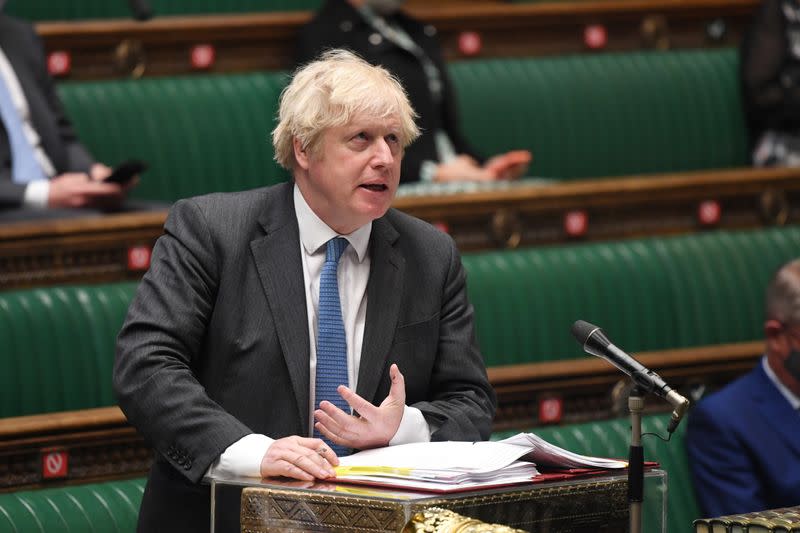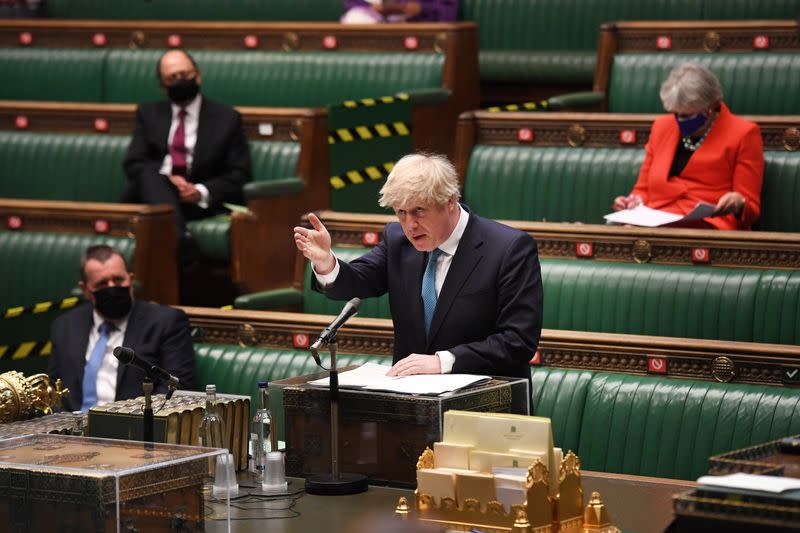UK parliament backs foreign aid cut after PM Johnson sees off rebellion
LONDON (Reuters) - Britain will go ahead with a temporary cut to its foreign aid budget after Prime Minister Boris Johnson defeated a rebellion in parliament on Tuesday by lawmakers in his Conservative Party.
The government won a vote by 333 to 298 on its proposal to cut the minimum spend on overseas development to 0.5% of economic output. The cut was first announced in November as a measure to help pay for the COVID-19 pandemic.
The victory comes after the government persuaded a sufficient number of party members to back the plan despite early signs that a high-profile rebellion could inflict an embarrassing defeat.
Several potential rebels were won over by a promise to restore aid to the 0.7% level once Britain no longer needed to borrow to fund day-to-day needs, and once an underlying measure of public debt was falling.
Opponents included Johnson's predecessor Theresa May.
They expressed scepticism that the conditions for restoring the spending would ever be met, and argued that the relatively small budget saving was outweighed by the negative impact it would have on aid recipients and on Britain's global standing.
The government's conditions for returning to 0.7% aid spending would not be met before 2024, according to analysis by the House of Commons library, which provides independent research to lawmakers. Their research was based on budget forecasts produced in March.
(Reporting by William James, editing by Elizabeth Piper)

 Yahoo Finance
Yahoo Finance 

